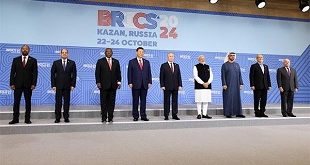Status in Uganda
The congress was held at a time NWSC was continuing to work tirelessly to achieve 100% coverage for water and sewerage services for both rural and urban areas by 2030 in line with the SDGs timelines.
Currently, water coverage in rural and urban areas stand at 71% and 79%, respectively according to Mugisha.
In terms of service areas, Mugisha said, the Corporation had expanded its geographic coverage from 27 towns in 2013 to slightly over 250 towns by close of Financial Year 2018/2019.
However, he said the 2030 coverage target would need funding of about Shs5trillion to be raised by the corporation internally and through government grants. The other source of funding would be from commercial banks.
Enter President Museveni
Meanwhile, Museveni said water issues must be addressed holistically in tandem with other issues like the environment, health, income generation and electrification.
“It should not be handled in isolation,” he said, adding that stakeholders also need to address the energy questions for the population to reduce on over-reliance on forests for firewood.
Jeffrey Goldberg, the director, office of water at USAID, said that the congress was in line with Sustainable Development Goal No.6 which calls for clean water and sanitation for all people.
He said that to achieve this goal among others by 2030, it would require adequate financing for key water utilities and institutions in form of grants, public private partnerships.
He also said this would require governments to grow their economies because of a direct linkage between economic growth and access to clean water and sanitation facilities.
“Things are changing. We need a new generation of engineers, biologists, sociologists to provide a holistic service,” Goldberg said.
Diane d’Arras, the president of International Water Association (IWA), said, governments in Africa have to work extra hard because the two billion Africans are facing a challenge of intermittent water supply due to challenges related to environmental degradation, financing, insufficient policies and lack of collaboration between utilities and governments.
As a solution, d’Arras suggested the need for embracing new technologies to deliver the service.
She also said that authorities need to empower the people to develop solutions for products that are instrumental in improving the water and sanitation field.
Other pertinent issues
During the congress, another key issue that sparked debate was rotating around the need to use water resources as fuel for boosting growth and economic development.
At a parallel session organized by Uganda Electricity Generation Company Limited (UEGCL), Mary Kitutu, the Minister of Energy and Mineral Development, said the government is committed to ensuring that it conducts feasibility studies to ascertain the value for any project that would be implemented using water resources.
She was responding to a cited example of the controversial Murchison Falls giveaway – for constructing a power dam, which environmental and tourism activists have vehemently opposed.
“We have controls in place. We will weigh the value of the dam against the ecological value,” Kitutu said.
She added that: “Murchison Falls is our cultural heritage; we shall protect it; but also we should allow scientists to do their work and we weigh options.”
Amos Wekesa a private investor in the tourism sector said Murchison Falls should be left as it is and that the issue should not even be debated because it (Murchison Falls) was contributing significantly to the tourism sector revenues and the economy in particular.
“Let us not think of destroying Murchison Falls,” he said, “I am ready to go naked if this debate continues,” he added.
Proscovia Margaret Njuki, the Board Chairperson for UEGCL and Eng. Harrison Mutikanga, the CEO for UEGCL, said they would continue working closely with relevant ministries and government agencies to ensure that they operate and maintain the hydropower dams that are using water as a resource to generate power, in a way that does not negatively impact the water resources and the environment.
This was the second time Uganda was hosting the AfWA congress. The theme for this year’s congress was: Breaking new grounds to accelerate access to water and sanitation for all in Africa.
****
 The Independent Uganda: You get the Truth we Pay the Price
The Independent Uganda: You get the Truth we Pay the Price


